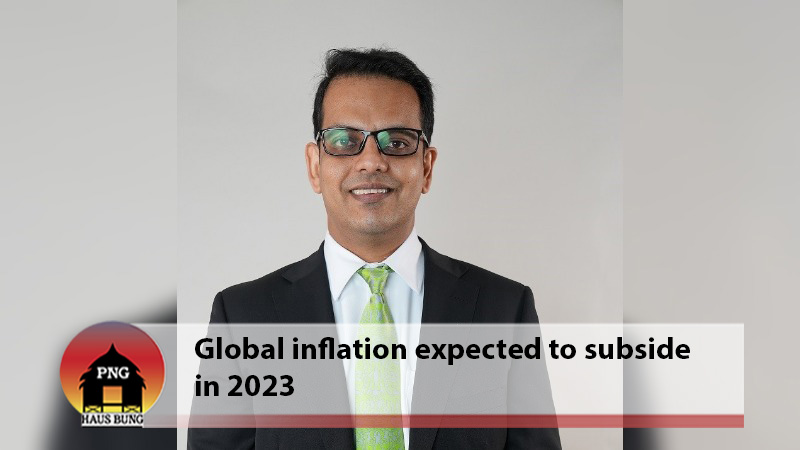Papua New Guinea’s economy through the course of 2022, has experienced higher levels of activity post the COVID-19 period.
To maintain this shift in momentum, government needs to accelerate foreign direct investment (FDI) in 2023.
According to the 2022 BSP Quarter 4 Pacific Economic and Market Insights Report, the Pacific region’s economies collectively grew by 5.3% in 2022, mainly driven by growth in PNG’s mineral sector and Fiji’s tourism sector.
In 2023, all Pacific economies are expected to post positive GDP growth, with regional growth of 4.8% as the recovery in some countries stabilizes.
BSP Acting Group Chief Executive Officer Ronesh Dayal said, “with the reopening of borders across the Pacific, we have seen marked improvement in economic activity across the Group compared to the COVID-19 period.”
PNG’s economy grew by 4.6% in 2022, led by higher oil and gas production, as developers sought to capitalise on high prices.
Production is expected to normalise in 2023, leading to a lower growth forecast of 4.0%.
Non-resource sector GDP is estimated to have grown by 4.5% in 2022, and 4.6% is forecast for 2023. Whereas, resource sector GDP is forecasted to grow by 1.2% in 2023.
Given PNG’s reliance on imports, the country was prone to the effects of heightened global inflation, driven largely by imported inflation for crude oil and foods.
Though global inflation is expected to subside in 2023, we do not expect that this will immediately translate to lower prices for PNG consumers.
Monetary policy tools including the Kina Facility Rate (KFR) and the Cash Reserve Requirement (CRR) have been used to tighten money supply and combat inflation.
The KFR was increased to 3.50% in January 2023 and the CRR has increased steadily from 7% to 10% (pre-COVID levels) by the end of 2022.
When speaking on the potential upsides for the PNG economy, Mr. Dayal added “In early 2023, we need to see tangible foreign direct investment (FDI) commitments particularly from the extractive sector, before we see PNG’s economic recovery commence,” and stressed that PNG needs FDIs in 2023 to consolidate its growth trajectory and achieve a sustainable recovery.
Regarding the financial sectors role in the economic growth expected for PNG, Mr. Dayal added “differentiating industry corporate income tax rates, like those seen for commercial banks in PNG, can be particularly damaging for emerging economies such as PNG. Such tax policies are detrimental to the proper functioning of market forces and conflicts with modern economic theory.”
“The tax rate increase to 45% on commercial banks comes at a time when other locally-grown financial institutions are looking to obtain commercial banking licenses. The timing is unfortunate
and will act as a deterrent for the much needed expansion of the financial sector and investments in PNG,” he concluded.

